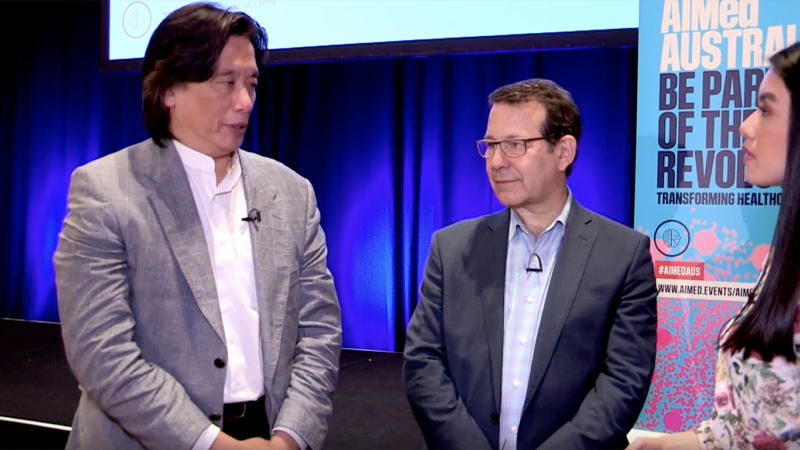In March 2022, the Australia government announced $350 million of funding over 4 years to employ on-site pharmacists in residential aged care, starting July 2023. In April 2023, the government made changes to the proposed on-site pharmacists, where the new program will now be delivered by and through community pharmacies. Regardless of how the model will be implemented, the goal remains the same – to improve quality use of medicines and medicines safety for aged care residents.
While it is relatively easy for pharmacists to monitor and manage some types of medicine harms (e.g., due to use of inappropriate medicines), many medicines can cause “milder” harms (e.g., poor balance, sedation) that are difficult to detect without the right tools. Left unmanaged, these “milder” harms can lead to serious adverse events such as injurious falls, according to Pharmacist Julian Soriano talking to Australian Health Journal.
In a joint project between UniSA, Tanunda Luteran Home, Flinders University and UNSW, a digital solution has been used to create an evidence-based, medicines use model to assist pharmacists (on-site aged care or community pharmacists) with actively monitoring medicine harms.
An interdisciplinary team at the University of South Australia (UniSA), University of New South Wales (UNSW) and Flinders University is currently implementing the TeleClinical Care (TCC) platform incorporating data from a suite of digital technologies to enable pharmacist at the Tanunda Lutheran Home (where Julian Soriano works) to actively monitor their aged care residents.
The ARIIA funded project is being conducted in two phases:
i) Phase 1 involves developing protocol to extract data from digital technologies (e.g. activity trackers, sleep tracking mats) into the TCC platform. The core of the existing TCC platform is a dashboard that includes longitudinal visualisations of changes in residents’ health and well-being over time. Other existing data sources collected in residential aged care will be uploaded to the dashboard, including medicine use (e.g. medicine changes, sedative load), clinical care record (e.g. bowel movement) and adverse events (e.g. falls, hospital admission).
ii) Phase 2 involves a pre-post implementation study over 12-weeks, with 30 residents recruited from the Tanunda Lutheran Home. The selected digital technologies will first be installed for all enrolled residents who provided written consent. Enrolled residents will also be asked to use an activity tracker. Prior to service provision, two weeks’ baseline data will be collected from the digital technologies; the data will serve as reference point for future changes. Pharmacists will monitor all participants using the centralised TCC dashboard.
As Soriano states, “A platform like this is going to make that job much more streamlined. And the use of sensors such as a sleep tracker and activity tracker is also going to help provide the pharmacist with more information to be able to make more informed decisions, more informed recommendations for residents, their families and their treating GPs.”
The current workforce challenges in aged care are not forgotten and Soriano expresses hope, that “this platform won’t increase the burden on residents and the staff there in terms of gathering this information. Hopefully this will be quite streamlined and automatic and there won’t be a real big service change for the already overworked nurses and residents living in aged care would just be able to live and not have to worry constantly about being poked and prodded.”
You Might also like
-
Sovereign capability uplifted
Skilled labour, in particular skilled in the manufacture of MTP products, namely competency in Good Manufacturing Practice (GMP), was identified as one of the key priorities, according to Jarrod Belcher, Director of the REDI Program at MTPConnect. Through a competitive process, MTPConnect selected additional industry training providers to deliver new programs addressing key skills gaps in the sector workforce.
Launched in September 2022, one of these programs is GMP Uplift developed by the Centre for Biopharmaceutical Excellence (CBE). CBE bring experience across large and small Biologics, Pharmaceuticals and Regenerative Medicine companies, both in consulting and GMP related enterprise training. CBE staff also have extensive experience in GMP operations, compliance, auditing and QMS design, a wide industry network for guest lecturers and readily available case studies.
-
Australia’s Nursing Crisis Snapshot
“Nursing, already under pressure, is reaching breaking point due to the pressures of COVID-19 and a disjointed healthcare system, including the acute, primary and aged care sectors”, says Kylie Ward, Australian College of Nursing CEO adding, “We must act now to protect our nurses and healthcare; the time has come for a national reckoning on nursing in Australia.”
Australian nurses cannot continue to work under the extreme pressure they are currently operating under – the impacts are mounting.
The almost 400,000 Australian nurses are a constant presence in every one of our major life milestones, national emergencies and global crises. The nurse of today holds a science degree, possesses highly technical training, valuable medical opinions, front-row expertise, is an effective trainer, and is skilled in population and systemic thinking. But the pandemic is inflicting a major emotional and physical toll on nurses.
In this “Perspectives” special, Australian Health Journal spoke with 4 nurses on the challenges they or nurses in their circle have experienced, the key issues as well some of the opportunities. These nurses come from national leadership & policy, large scale workforce management, a final year student completing over a year on placement across 6 Melbourne Hospitals and a NSW based ICU nurse stranded in Mexico, unable to return to a critical role in nursing to an already strained team due to incoming quotas.
While the issues are challenging, there are strategies that can be put into place to ease the pressure, to support nurses, and nursing care in Australia. These are discussed by the the 4 nurses.
– Adjunct Professor Kylie Ward FACN CEO, Australian College of Nursing
– Adjunct Professor Alanna Geary FACN ACN Chair of Workforce Sustainability Policy Chapter & Chief Nursing & Midwifery Officer, Metro North Health
– Natalie Reyes, NSW based ICU Nurse Currently stranded in Mexico
– Hayley Pollock, Final Year Bachelor of Nursing Student & ACN Emerging Nurse Leader
Post Views:
1,308 -
Artificial Intelligence (AI) & data skilling clinicians
In this first release, world renowned AI and medical data science experts Dr Anthony Chang and Professor Enrico Coiera spoke to Australian Health Journal reporter Anne Dao at AIMed 2019 Sydney. The conference aimed at clinicians and non-clinicians discussed current clinical applications of Artificial Intelligence in medical imaging, decision support, use of predictive healthcare and machine learning.



